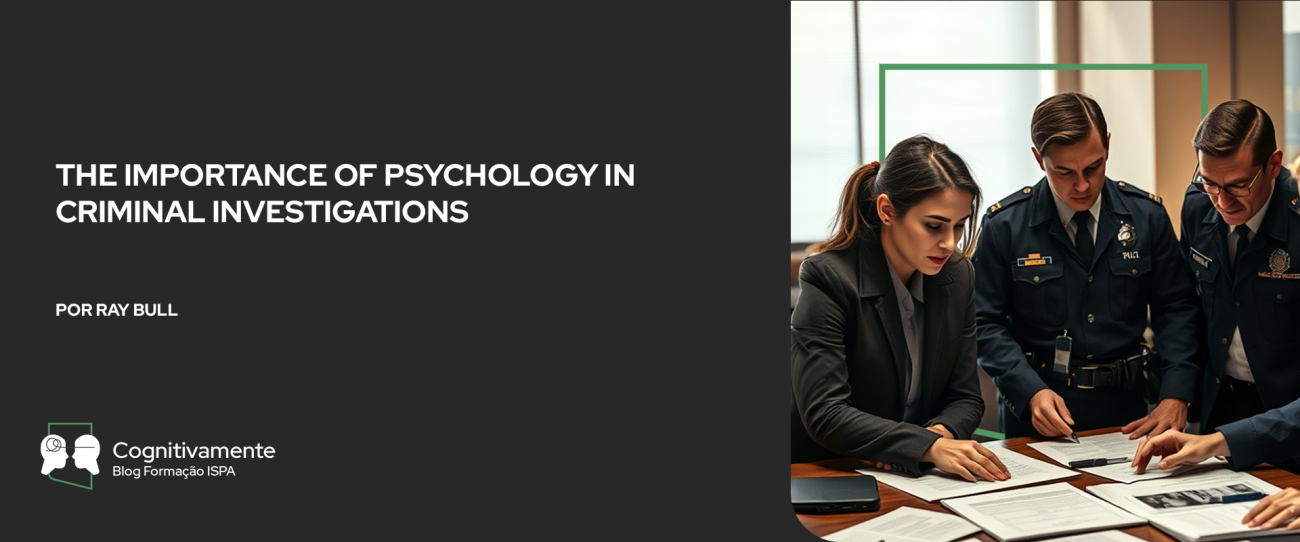The importance of psychology in criminal investigations

The Evolution of Investigative Interviewing: From Ethical Mandates to International Standards
Recognition of the importance of research-based psychology in criminal investigations commenced several decades ago. A prime example of this is to do with what nowadays is usually referred to as the ‘Investigative Interviewing’ of suspects, witnesses, and victims. The countries of England and Wales were the first in the world to mandate by law that from 1986 the interviewing of suspects had to be recorded (e.g., using audiotaping). This was done in the light of some previous investigations during which, in interviews, a relatively small number of police had behaved unethically towards suspects (e.g., physically assaulting them).
Subsequent research by psychologists (and others) that analysed many interviews conducted in the few years after 1986 found that the interviewing was mostly of limited quality, which led the Chiefs of Police and the government to set up a committee (mostly of experienced detectives) to develop a comprehensive training programme.
The PEACE Method: Integrating Psychology into Law Enforcement Practices
Fortunately, a ‘rising star’ in the London police had a Bachelor’s degree in Psychology, and he convened another small committee to collate relevant information from psychology and allied disciplines. This information he passed on to the training committee that very innovatively, in what they produced (in 1992 – called the ‘PEACE method’), used a lot of this psychological information (having taken the trouble to check with me that they had correctly understood the psychology).
Some years later, police officers in other countries, who also had qualifications in psychology, adapted this ‘PEACE method’ to the needs of their countries (e.g., New Zealand and Norway). In the light of these international developments, the United Nations ‘Special Rapporteur on torture and other cruel, inhumane or degrading treatments’ (law professor Juan Mendez) felt able to recommend the development “…of a universal protocol identifying a set of standards for non-coercive interviewing methods and procedural safeguards that ought, as a matter of law and policy, to be applied at a minimum to all interviews by law enforcement officials, military and intelligence personnel and other bodies with investigative mandates.”
When mentioning this “universal protocol” in 2016, the U.N. Special Rapporteur noted that “Encouragingly, some States have moved away from accusatorial, manipulative and confession-driven interviewing models with a view to increasing accurate and reliable information and minimizing the risks of unreliable information and miscarriages of justice” and that “The essence of an alternative information-gathering model was first captured by the PEACE model of interviewing adopted in 1992 in England and Wales … investigative interviewing can provide positive guidance for the protocol” (Mendez 2016: 13).
Global Adoption and the Impact of the Mendez Principles
This recommendation was acted upon, and an international committee was set up (involving some psychologists) to draft this “universal document”/set of extensive guidelines, which, after a few years of deliberation, was published in 2021 (known as the ‘Mendez Principles’). These guidelines are extensively based on psychology, having as major foci such topics as open-mindedness, rapport development and maintenance, listening skills, memory, recall, and question types.
A few years later, an experienced crime investigator, who had obtained a PhD in psychology and had then become a university professor, obtained from a European organisation substantial funding to instigate, develop, enhance the use of the ‘Mendez Principles’ throughout Europe (and beyond). This ‘ImpleMendez’ project (at the time of my writing this in December 2024) involves over 200 people in a large number of countries (many of whom are psychologists, some also being police officers/crime investigators).
In the ways that I have described here, it is clear that psychology is very important in criminal investigations.
Visite o perfil de Ray Bull


